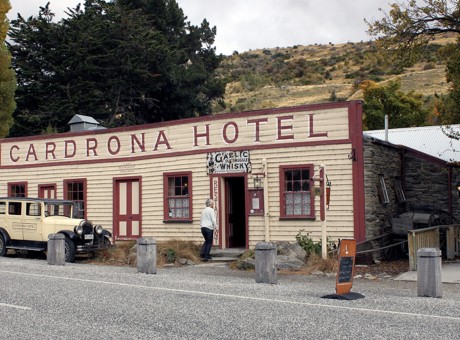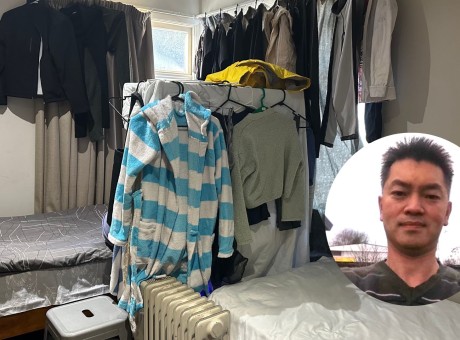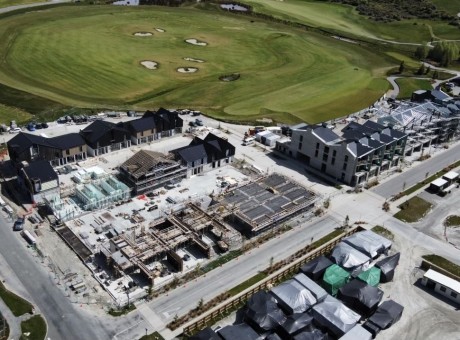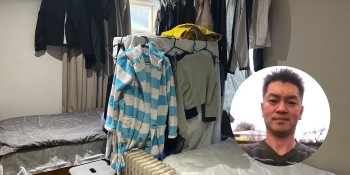Both of these men lied, but only one resigned. Why?

Editorial/Analysis
Even as journalists we don’t expect to find actual, serious lying from senior public servants.
Sure, there’s the normal cat and mouse game of spin and counterclaims, and even the occasional “stretching of the truth” – but what we have uncovered with the Queenstown Lakes District Council and their chief executive Mike Theelen is in a whole new league.
Mr. Theelen, through his close working relationship with mayor Jim Boult, has created an atmosphere at the QLDC so riddled with hidden workshops, management having “no appetite” to consult elected councillors, deals done behind closed doors, and the tens of millions of dollars being lost so far in the speculative Lakeview deal that hardly anybody wants to stand for election as a councillor.
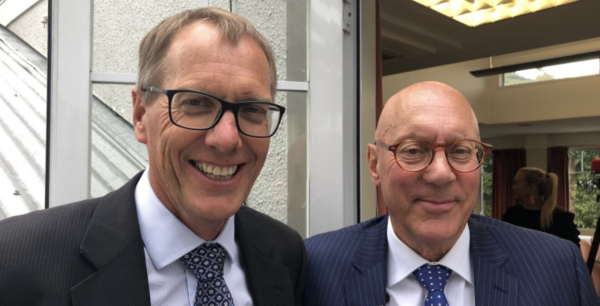
QLDC's CEO Mike Theelen (left) has been seen by councillors to have a very close working relationship with Mayor Jim Boult
But, most importantly, as journalists, we have reached the point where we can’t trust council staff, in particular Mr Theelen, to tell us the truth. The consequences of this are beyond serious. It casts doubt on all our dealings with the council communications team as they are following instructions from higher up - instructions we can’t see under official information requests as the QLDC refuses to release this information.
Councillor Niamh Shaw’s announcement this week that she won’t stand for a second term was a surprise. Many of us thought that she would keep fighting, alongside councillors Niki Gladding, Esther Whitehead and Quentin Smith, for a more transparent and more open style of local government.
But she’s had enough and, frankly, so have we.
Crux journalist Kim Bowden has explained in a recent story there’s few mechanisms for policing local councils. The most effective – the elected councillors themselves. They employ and manage the chief executive on our behalf.
But our councillors have been constantly denied access to the very information they need to be effective employers. Even now, as Mr Theelen’s annual employment review is underway, we as media have no visibility of the process and the councillors have to defer to recommendations that will be made by a three-person panel of mayor Jim Boult, deputy mayor Calum MacLeod and councillor Penny Clark – all with a strong record of supporting Mr Theelen and the status quo.
It’s unusual for local democracy to break down to quite this extent. The reasons it has happened at the QLDC can be listed quite clearly:
- We are a small community with billions of dollars of property and tourism deals in play. There’s a lot at stake and money talks.
- An historic lack of local media scrutiny linked to hundreds of thousands of dollars’ worth of QLDC-funded local newspaper advertising.
- We have an entrenched, elite business community that considers the QLDC to be “their” council and the QLDC mayor, “their” mayor.
- People here must work hard to survive – being an effective councillor involves low pay and long hours. Not suitable for younger residents with full-time jobs and families.
- Long-serving, senior council managers, so entrenched in their roles and well-versed on the ins-and-outs of council goings-on they’ve developed extensive defensive mechanisms when challenged. They can be blinkered in their action plans, unswayed by feedback from elected members or the public in general. Community engagement is something that is perceived as an empty, box-ticking exercise.
- There are no consequences for council managers lying or gaming the system – apart from the ballot box every three years, but, even then, democracy depends on us knowing what really goes on at the QLDC, with its annual budget of more than $100 million.
Yet all of this could be somehow classified as the trials and tribulations of local government – far from perfect but, at least (ultimately), democratic via local elections.
But no. When a council chief executive lies to local media and residents that is something else.
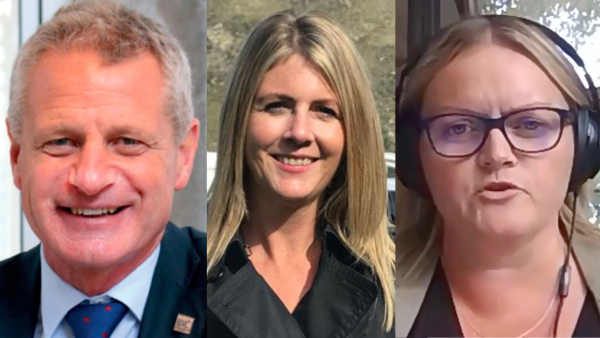
Jobs for mates? Bruce Robertson, Ruth Stokes and Jendi Paterson have all been hired by QLDC without full, competitive procurement processes being in place. CEO Theelen denied the rules were being broken for a year - and then admitted 300 non-compliant payments were made every month.
For more than a year Mr Theelen and his senior managers told Crux the council’s “jobs for mates” rules were being met. It was black and white – time after time we were told "QLDC is following the rules”. After a year of pressure from Crux Mr Theelen finally admitted that the rules had not been followed since they were written in 2016 and the problem was so serious that more than 300 payments each month were non-compliant.
Mr Theelen lied.
But then he doubled down by using his 2017 sole delegated authority to drive a remarkably risky deal to gamble, and potentially lose, a high-stakes game with the Australian developers of Lakeview. Not only did he unsuccessfully barter a $42-million piece of land that would have made a huge difference to the QLDC balance sheet, but he also ended up spending more than $55 million on site preparations for a 20-year deal that ultimately could turn to custard.
Then he lied again – according to councillor Gladding - by telling councillors that they could not stop the Lakeview developers going for fast-track consent with no real public notification. It turns out that QLDC could have stopped the fast-track consent, which is what the councillors demanded, and were promised, in return for a doubling of height by the developers.

Environment Minister Parker was given conflicting messages by CEO Theelen after councillors were promised publicly notified consent when the Lakeview developers doubled their building height.
Mr Theelen’s Lakeview decision was to tell Environment Minister David Parker that he and his management team effectively disagreed with the elected members, and the public notification promise that had been made, leading to Minister Parker granting fast-track consent.
And there’s the hundreds of hard-working council staff who must wonder why, when they do nothing wrong, the QLDC gets such a hard time in the public arena.
Not only does the buck stop with Mr Theelen but he is clearly the architect of this desperate situation.
He must resign to give prospective new councillors any hope of delivering fair and open local government. Otherwise, valuable months of a new post-election council will be wasted in a messy and lengthy employment process that will further damage the already tarnished image of the Southern Lakes community.
As the auditor-general observed following their investigation into the procurement scandal, the QLDC has left itself open to suspicion that something seriously bad is going on. Crux shares that view.





